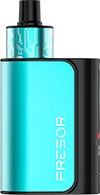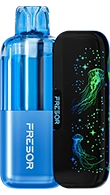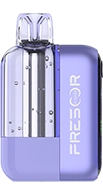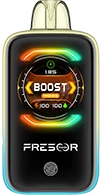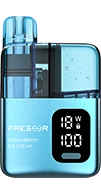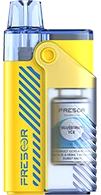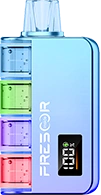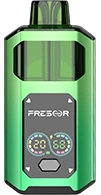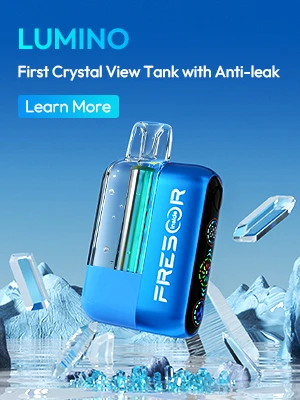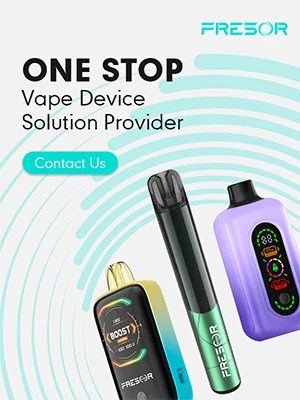Vaping Laws in New York: Key Regulations and Market Insights

29 April 2025

The vaping landscape in New York has undergone significant transformations in recent years, reflecting a concerted effort by state authorities to regulate the industry and address public health concerns.
Understanding these state-specific laws is crucial for consumers, retailers, and manufacturers to ensure compliance and adapt to the evolving market dynamics. This article provides a comprehensive overview of New York's vaping regulations and examines their impact on the state's market.
Let’s get started!
Overview of Vaping in New York
Vaping has seen fluctuating trends in New York. As of 2023, approximately 10% of high school students in the state reported using e-cigarettes, reflecting a decline from previous years but still indicating a significant number of youths engaging in vaping.
The following is a historical evolution of vaping laws you might want to understand in 2025 moving forward;
Historical Evolution of Vaping Laws
New York has been proactive in implementing vaping regulations. In 2020, the state enacted a ban on the sale of flavoured nicotine vapour products to curb youth vaping. This legislation marked a pivotal step in controlling the accessibility of appealing flavours to minors.
Similarly, the historical evolution of vaping laws has been shaped by concerns over public health, the rapid growth of the e-cigarette industry, and the rise in use, particularly among young people. As vaping products became more popular, governments worldwide began to adapt their laws and regulations to mitigate any associated risks.
Public Health Perspective
Public health officials in New York have expressed concerns over the potential health risks associated with vaping, particularly among youth. The state's Department of Health has initiated campaigns to educate the public about these risks and promote cessation programs.
Essential Vaping Laws and Regulations in New York
New York has implemented several essential laws and regulations concerning vaping in response to growing concerns about public health, particularly regarding youth use of e-cigarettes and other vaping products.
These regulations aim to balance the desire for smoking cessation with the need to protect public health, especially for minors.
Below are some of the key vaping laws and regulations in New York:
Minimum Age for Vaping Products
In New York, individuals must be at least 21 years old to purchase and possess vaping products. This aligns with the state's efforts to prevent underage access to tobacco and nicotine products.
The law is designed to prevent minors from obtaining e-cigarettes and other vaping products, which are particularly appealing to younger populations. Retailers who sell vaping products to individuals under the legal age may face fines, penalties, and the potential loss of their tobacco sales license.
Sales and Distribution Laws
· Licensing and Registration
Retailers selling vaping products must register with the New York State Department of Taxation and Finance. As of 2023, there were 16,759 registered tobacco and vapour product retailers in the state.
This means vape retailers must obtain a Tobacco and Vapor Products Dealer License from the New York State Department of Taxation and Finance (NYSDTF) before selling e-cigarettes or vape-related products.
Additionally, online and out-of-state sellers must comply with New York's shipping restrictions, prohibiting direct-to-consumer vaping product shipments. Non-compliance with these regulations can lead to hefty fines, license revocation, or criminal charges.
· Advertising Regulations
New York has strict advertising regulations to prevent youth exposure and misleading marketing of vaping products. These regulations are designed to align with both state and federal laws, particularly those enforced by the Federal Trade Commission (FTC) and the Food and Drug Administration (FDA).
Therefore, on January 1, 2024, New York implemented stringent marketing rules for e-cigarettes, prohibiting brand names, logos, or other identifying markers on any product other than the e-cigarette. Additionally, offering gifts connected to the purchase of e-cigarettes and sponsoring events like sports games and concerts are banned.
Public Use Restrictions
New York has some of the strictest indoor vaping bans in the U.S., aligning e-cigarette regulations with traditional tobacco smoking laws. These restrictions are enforced under the Clean Indoor Air Act (CIAA), which prohibits vaping in most public indoor spaces to protect non-users from secondhand aerosol exposure.
· Indoor Vaping Bans
Vaping is prohibited in various indoor areas, including places of employment, bars, food service establishments, public transportation, and enclosed indoor areas open to the public containing a swimming pool.
· Outdoor Vaping Bans
While specific state laws on outdoor vaping in parks, beaches, and public spaces may vary, local ordinances often impose restrictions to protect public health. It's essential to consult local regulations for precise guidelines.
· Near Schools and Sensitive Locations
Vaping is strictly prohibited near schools and other sensitive locations to prevent exposure to minors. Recent legislation also targets the sale of vaping products resembling school supplies or toys, aiming to reduce appeal to children.
Flavored Vaping Product Bans
In 2020, New York banned the sale of flavoured nicotine vapour products, excluding tobacco and menthol flavours, to deter youth from initiating vaping. This ban significantly impacted product availability and choices for consumers and businesses.
Vaping Taxes in New York
New York imposes a tax on vapour products, contributing to the state's revenue and serving as a deterrent to consumption. The tax structure is designed to reduce the affordability of these products, thereby discouraging use.
These taxes reduce vaping rates, especially among young users, and generate state revenue for public health programs.
Therefore, New York State imposes a 20% supplemental sales tax on retail sales of vapour products, which applies to both nicotine and non-nicotine e-liquids.
Registered vapour product dealers collect this tax separately from the standard state and local sales taxes. Retailers must display this supplemental tax as a distinct line item on customer receipts.
For instance, if a vapour product is priced at $10, the 20% supplemental tax would add $2, making the total $12 before applying standard sales taxes.
These measures aim to regulate the vaping industry and address public health concerns
Health and Safety Regulations
State law mandates health warnings on vaping products to inform consumers about potential risks. These warnings are part of broader efforts to educate the public and reduce the prevalence of vaping-related health issues,
The Vaping Market in New York: Trends and Impacts
Due to strict regulations, flavour bans, and high taxation, New York's vaping market has changed significantly. Despite these challenges, vaping remains a popular alternative to smoking, and businesses continue to adapt to new market trends.
Key Vaping Products in New York
The vaping industry in New York offers a variety of products, with consumer preferences shifting due to regulatory changes and health-conscious choices. Below are the most popular categories of vaping products available in the state.
· Pod-Based Systems (Closed & Open Pods)
Pod systems remain one of the most widely used vaping devices due to their convenience and portability. These include:
· Closed Pod Systems (e.g., JUUL, Vuse Alto) – Pre-filled pods with limited flavour options due to the state's ban.
· Open Pod Systems – Refillable pods allow users to choose nicotine strengths and compatible e-liquids.
· Disposable Vapes
Disposable vapes such as Elf Bar, Flum, and Geek Bar remain in high demand due to their ease of use and affordability.
The flavour ban has limited choices, but some retailers find legal loopholes by offering synthetic nicotine-based disposables.
Due to high taxes and strict regulations, many consumers purchase disposables from out-of-state sources or the black market.
Market Adaptation to Legal Changes
Businesses and retailers have had to adapt to stringent regulations by altering product offerings and marketing strategies. Compliance with advertising restrictions and flavour bans has been crucial for continued operation.
New York's Role in Shaping the National Vaping Market
New York's comprehensive regulations have influenced national policies and prompted other states to consider similar measures. The state's proactive stance serves as a model for addressing public health concerns related to vaping.
Frequently Asked Questions (FAQs)
1. Are vapes illegal in New York?
No, vapes are not illegal in New York. However, their sale and use are subject to strict regulations, including age restrictions, flavour bans, and usage prohibitions in certain areas.
2. Can you bring vapes to New York?
Yes, individuals can bring vapes into New York for personal use, provided they comply with state laws, such as age requirements and usage restrictions.
3. Can you bring a vape on a plane in New York?
The Transportation Security Administration (TSA) allows passengers to carry e-cigarettes and vaping devices in carry-on luggage but prohibits their use on planes. Travelers should also be aware of New York's regulations upon arrival.
Do you need a license to sell disposable vapes in New York?
Yes, businesses must obtain a New York State Vapor Products Dealer Registration to legally sell the state's disposable vapes and other vaping products.
Conclusion
New York's comprehensive approach to vaping regulations underscores the state's commitment to public health and safety. These regulations have significantly influenced the vaping market in New York, prompting businesses to adapt their practices and offerings accordingly.
For more detailed information on vaping laws across different regions, consider exploring resources provided by FRESOR, a leading authority in the vaping industry. Our comprehensive insights can help you and your businesses navigate the complex regulatory landscape effectively.
Featured Articles
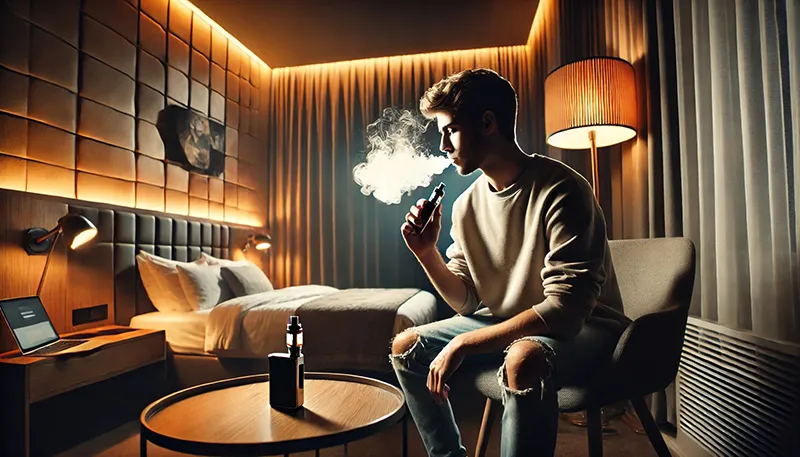
Can You Vape in a Hotel Room? A Guide for Travelers, Vapers, and Hoteliers
2024-09-19

Vape Legal and Regulatory Weekly Report - September 14, 2024
2024-09-14
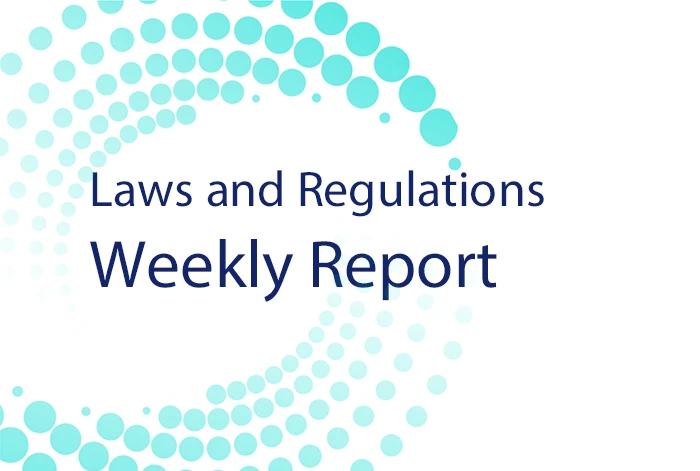
Vape Legal and Regulatory Weekly Report - September 9, 2024
2024-09-09

Vape Legal and Regulatory Weekly Report - September 2, 2024
2024-09-02
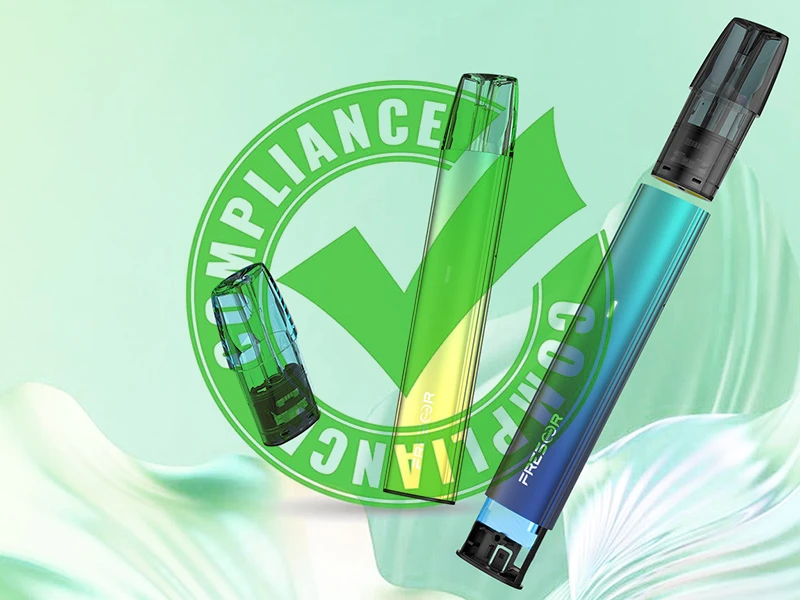
Vaping Laws in Germany: An Update on What You Need to Know
2024-08-12

